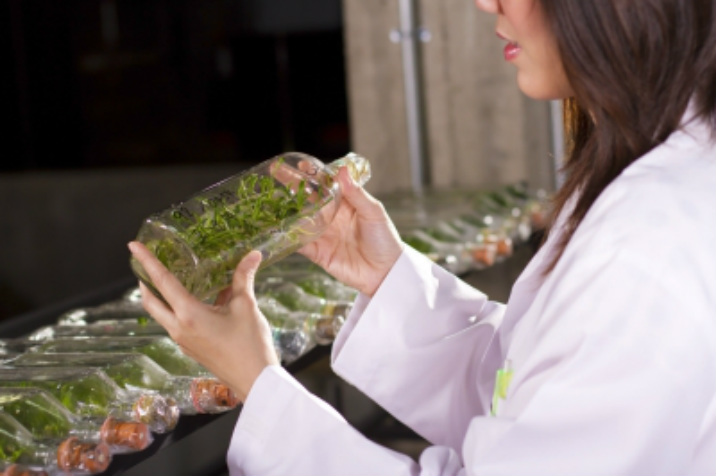|
By Julia Tartaglia Too often research positions become more about what you can do for the lab instead of what the lab can do for you. We women, statistically speaking, are more likely to fall into this trap than our male counterparts [see this article]. Studies and countless articles have cited the problem that women tend to earn less and receive fewer promotions because they don’t ask for them. Ok, great, we get how this applies in the real world – but what am I supposed to be getting out of my research position? It is hard to strive for more when you aren’t clear on what it is you are looking to get out of an experience. Instead, if you go in with clear minds and goals, you can get significantly more out of your experience, taking proper steps to advancing yourself in your career aspirations. Here is a list of what you should be looking to get out of your lab research experience to elevate your career in STEM. 1. Your name on a publication: This one is probably the most obvious. Research can be a dog-eat-dog world, and scientists are often promoted and offered positions based on how many publications they have. If you are looking to apply to graduate school, having your name on a paper, especially as first or second author, can make you stand out as an applicant. What many students don’t realize is that in far too many labs, whose name gets on the paper comes down to politics. If you significantly contributed to a project by collecting the bulk of the data or performing the experiments and analyses or were a part of the write-up process, chances are you should have your name on the paper. Talk to your post doc and PI about your interest on being included on any upcoming publications. 2. Mentorship: Of course, research requires not just skill, but a bit of luck. Many times, projects just don’t work out, and don’t lead to a publication. This is not a reflection on your intelligence, so don’t be discouraged (we’ll have some more posts on this later). Though publications are great, there is so much more you can and should still be getting out of lab. One important part to focus on is developing a relationship with your mentors. Mentorship is extremely valuable as you embark on your STEM career, and during your internship, you should be proactive in getting to know the post docs and primary investigators in your lab. 3. Strong Letters of Recommendation: This next point goes hand-in-hand with mentorship—the more your superiors in lab get to know you, your interests, aspirations, and work ethic, the stronger their support will be when it comes time for them to write you letters of recommendation. If you get to know your mentor well, this letter will be much stronger than any letter you get from a teaching fellow or professor from a big lecture. If you know that you will need a letter for an upcoming graduate school admissions cycle, be sure to ask at the end of your internship, after your mentor has gotten to know you well, but before she has time to forget how much you’ve contributed! [See how to ask for a letter of recommendation.] 4. Research skills: You’re in lab to learn valuable science and research skills! Though specific methods may vary between labs, basic lab techniques generally remain the same within fields. Learning common statistical analysis software and common lab techniques (eg. How to run gels, place EEG caps, or whatever it may be) will make you a more valuable candidate when you apply to future positions. Often times, you need to be proactive in your own lab education. Be sure to always ask questions if you feel you don’t understand something that was shown to you. If there is a technique that you’d like to learn, ask someone in the lab with more experience to show you. Usually they will be more than happy to show you, especially if you offer to do some data collection for them. 5. Become inspired! Last, but certainly not least, do be sure to learn as much science as you can during your internship. Do your outside literature reviews, listen and take notes during lab meetings, and ask questions. As you read, try to come up with your own questions and hypotheses about the research you are engaged in. Often as a junior research assistant, you may not have as much input into the study design or topic, but the more you read and become an expert in your topic, the more you can start to come up with your own original hypotheses and contributions. Keeping these five goals in mind, you’ll be sure to make the most out of your internship. Have any other tips or goals? Leave a comment below! Liked this article? You may also like... About the Blogger Julia Tartaglia is the co-founder and Editor-in-Chief of The Scientista Foundation. She graduated from Harvard with a degree in Human Evolutionary Biology and honors track in Mind Brain and Behavior. Julia worked for 5 years at the HMS Center for Sleep and Cognition under Bob Stickgold, PhD. She loves reading about the evolution of human nature. Comments? Leave them below!
0 Comments
Your comment will be posted after it is approved.
Leave a Reply. |
CONNECT WITH USSUBSCRIBE |
The Scientista Foundation, Inc. All Rights Reserved © 2011-2021 | Based in NY | [email protected]
The Network for Pre-Professional Women in Science and Engineering
The Scientista Foundation is a registered 501(c)(3) -- Donate!
The Network for Pre-Professional Women in Science and Engineering
The Scientista Foundation is a registered 501(c)(3) -- Donate!



 RSS Feed
RSS Feed